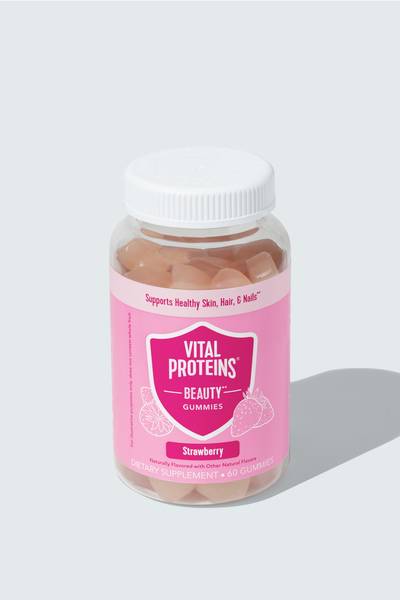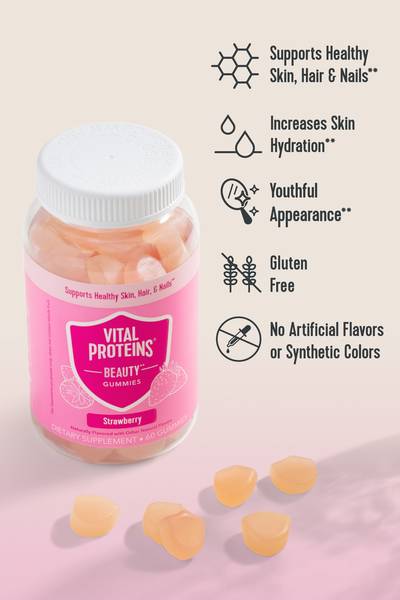If you’ve been keeping a close eye on beauty trends, gua sha (pronounced:gwa-shah) has been everywhere lately—and for good reason.
It’s a flat massage tool, usually made of jade or rose quartz stone, that effortlessly glides over the skin. People are loving the (temporary) results this tool can give. “Immediately, skin looks more lifted, less puffy and more sculpted,” says Morgan Rackley, Celebrity Esthetician and Owner of Luminous Skin Atlanta. There’s even some self-care to be attained from this ancient Chinese beauty tool, as it relaxes the facial muscles.
The reasons to try it don’t stop there. Ahead, we’ve left no stone unturned in learning everything there is to know about a gua sha from beauty experts.

What is a gua sha?
The history of this nifty beauty tool dates back centuries. Dr. Marie Jhin, a Board-Certified Dermatologist and President of Premier Dermatology, writes about this in her book Asian Beauty Secrets. Gua sha and other forms of Traditional Chinese Medicine have been used for centuries to help heal ailments by moving “qi” or energy in your body, she explains.
To put it simply, “Gua sha is a technique where a stone or tool with a smooth surface in order to improve lymphatic drainage and increase circulation in areas where there is inflammation or tension,” she tells Lively. Although similar, it’s not to be confused with a jade roller, which is another beauty tool used for face massage.
What are the benefits of using a gua sha?
Whether you’re looking for a massage or lymphatic draining, a gua sha can help. “Gua sha can eliminate fluid build-up, which can reduce puffiness and relieve tension from muscles around the face and neck,” explains Dr. Savaş Altan, Medical Aesthetic at Vera Clinic.
How do you use a gua sha?
Unlike facial devices that come with batteries, cords or a handful of instructions, a gua sha is relatively simple. “To use a gua sha, simply glide the tool’s smooth edges across the skin applying gentle pressure as you go,” says Altan. “The curved part should hug the curves of your face structure and the flat part should rest on your skin.”
One step that can’t be missed is using a type of facial oil or cream—and lots of it—to prevent bruising from tugging on the skin. Note: using a clean gua sha on a freshly cleansed face is important.
The main spots on the face and neck that you want to hit with the gua sha include the neck, the curved side of your face, underneath the chin, around the mouth, under the eyes and around the brow bone. “Starting with the neck, hold your gua sha with the curved side to your face and gently glide it gently up and out,” says Altan. He says to stroke down the neck, never upwards, to drain fluid.
Next, using the indent of the tool, “stroke the skin between three and five times per area around the chin and around the mouth,” Altan explains to Lively. Then, you want to press the tool flat to the skin and delicately stroke under the eyes or over any redness to soothe and de-puff. “Finally, work the tool in small horizontal strokes over the brow bone to lift or hold and press upwards between the brows to release tension.”
The amount of pressure used is determined by the area being treated and the end goal, says Jhin. “For a more cosmetic result, the stone gently glides along the skin in an upward and outward manner. To help with tension, the stone is used with more pressure in a back-and-forth manner to relax the targeted muscle(s).”

How often should you use a gua sha?
“The regularity of use will depend on your skin type and your skin's tolerance for the method,” says Altan. “As you start to familiarize yourself with it and get more comfortable with your techniques, you should aim to use gua sha at least two to three times per week.”
This really depends on your personal preferences though. Some beauty experts swear by daily use of a gua sha. If nothing else, it’s great to use before a big event.
Are there any side effects?
Although gua sha has very few side effects, it can bruise the skin. “For this reason, watching several videos online or even consulting your dermatologist for an individual lesson for personal use is recommended,” says Dr. Rosmy Barrios, head of the anti-aging department at IM Clinic and regenerative medicine specialist at Swiss Medica.
You may also experience discolouration of your skin or sore, tender spots if you’re using too much pressure, adds Atlan. The good news is that these can all be avoided so long as you’re using the gua sha correctly.

















